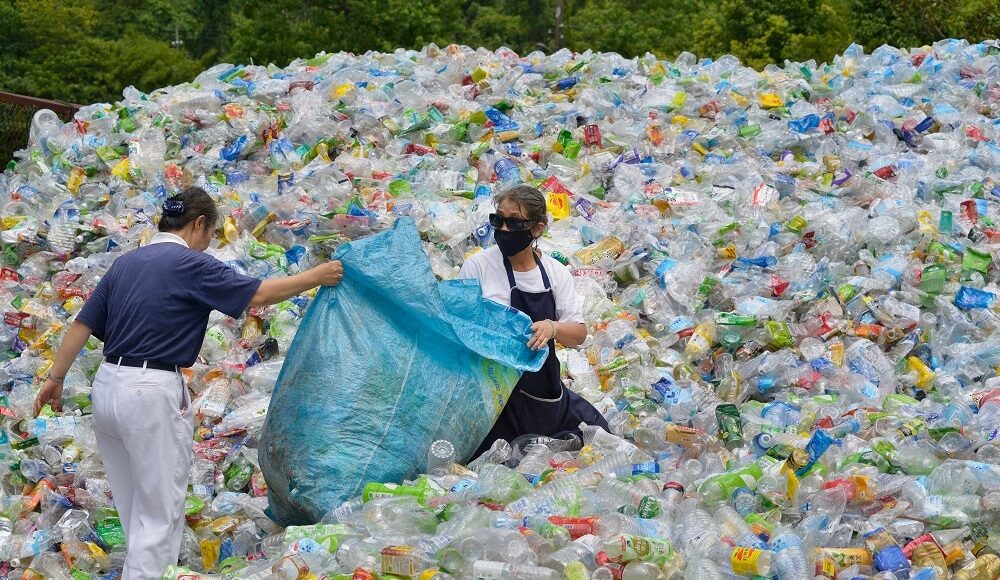MAY 2 — Garbage is often seen as worthless waste — something to be thrown out and forgotten.
But what if we told you that this so-called “garbage” could actually be a source of income?
Across the world, individuals, communities, and even businesses are realising the hidden value in waste, turning trash into treasure and contributing to a more sustainable future.
According to the World Bank, the world generates over 2 billion tonnes of municipal solid waste each year, with at least 33 per cent not managed in an environmentally safe manner.
In Malaysia alone, we produce more than 38,000 tonnes of waste daily, with a significant portion ending up in landfills.
Items like aluminium cans, plastic bottles, paper, and glass can be collected, sorted, and sold to recycling centres. — AFP pic
This not only takes up valuable land but also pollutes soil, air, and water.
But instead of allowing garbage to pile up, some have taken a different approach — seeing waste as an opportunity rather than a problem.
Recycling is the most obvious and established way of converting waste into wealth.
Items like aluminium cans, plastic bottles, paper, and glass can be collected, sorted, and sold to recycling centres.
For instance, one kilogram of aluminium cans can earn up to RM4.
Though it may seem small, collecting in bulk over time can generate steady income, especially for low-income communities.
In many Malaysian neighbourhoods, “kitar semula” (recycling) programmes encourage residents to separate waste at home.
Some local councils even reward households with points or vouchers based on the weight and type of recyclables they submit.
While recycling often breaks down materials into raw forms, upcycling transforms waste into something of higher value.
Entrepreneurs and artists are now creating handbags from old jeans, furniture from discarded pallets, and even jewellery from electronic parts.
Upcycling not only reduces waste but adds creativity and uniqueness to products, making them attractive in eco-conscious markets.
Small businesses selling handmade upcycled items on platforms like Shopee or Etsy can earn significant income, while also promoting sustainable practices.
Food waste is another major problem, with Malaysians wasting over 4,000 tonnes of edible food every day.
Instead of tossing food scraps into the bin, individuals can compost them into nutrient-rich fertiliser for gardens or farms.
Some urban farmers and gardeners even sell their compost or use it to grow organic vegetables, which fetch higher prices in the market.
In this way, leftovers from last night’s dinner can become tomorrow’s profit.
Electronic waste, or e-waste, is another valuable but often ignored resource.
Mobile phones, laptops, and other electronic devices contain precious metals like gold, silver, and copper.
Specialised recycling centres can extract these materials and sell them for a profit.
Although extracting metals from e-waste requires expertise, individuals can still benefit by collecting old gadgets and selling them to certified recyclers.
Several Malaysian companies, such as ERTH (E-Waste Recycling Through Heroes), even pay cash for old electronics and offer convenient pick-up services.
In some rural or low-income communities, waste-to-wealth projects have become powerful tools for empowerment.
In Selangor, for example, community recycling centres have created jobs for single mothers and senior citizens.
They sort and sell recyclables, earning a stable income while keeping their neighbourhoods clean.
Schools and universities can also benefit by organising collection drives or eco-entrepreneurship projects.
Students not only learn about sustainability but also develop real-world business and teamwork skills.
Despite the potential, there are still challenges.
Public awareness about proper waste separation is low, and access to recycling facilities is limited in some areas.
Moreover, without consistent support from authorities or incentives, many people may not see the value in turning garbage into money.
To overcome this, the government, NGOs, and private sector must work together.
Campaigns to raise awareness, improve recycling infrastructure, and provide small grants or tools for eco-businesses can go a long way.
Turning garbage into money is not just a catchy phrase — it is a real, impactful solution for both environmental and economic issues.
By changing our mindset about waste, we can reduce pollution, conserve resources, and create new sources of income.
In a world striving for sustainability, trash is no longer the end of the story.
It could be the beginning of something valuable.
* Muhammad Khairul is a Bachelor of Information Technology student at International Islamic University Malaysia
** This is the personal opinion of the writer or publication and does not necessarily represent the views of Malay Mail.





